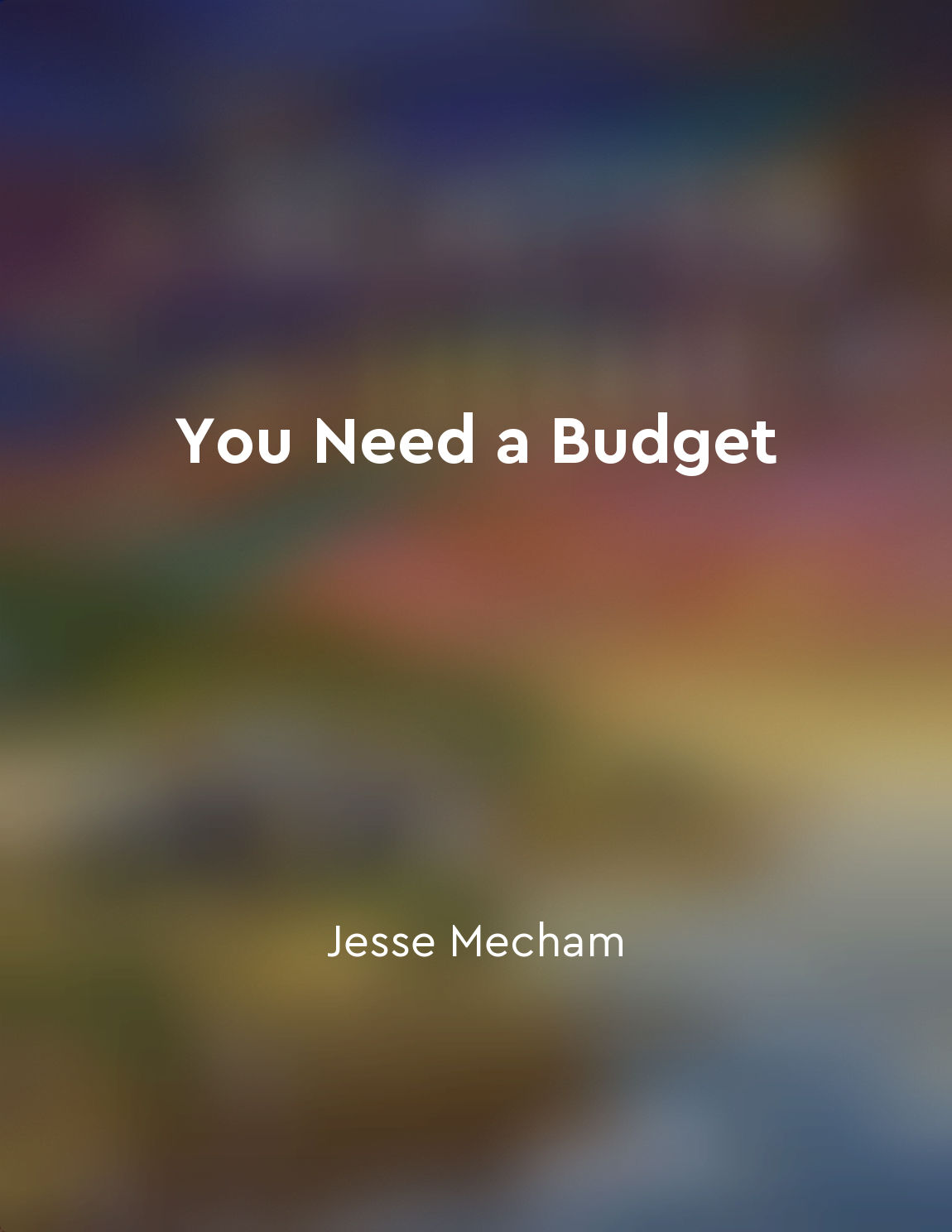Audio available in app
Build financial buffer from "summary" of You Need a Budget by Jesse Mecham
Creating a financial buffer is an essential part of achieving financial freedom. It involves setting aside a portion of your income to prepare for unexpected expenses and have peace of mind. Establishing a financial buffer can be an effective way to build a secure future.- Establishing a financial buffer is key to tackling any unexpected monetary needs or emergency situations. It is essential that anyone should allocate some of their income every month towards building their financial cushion so that they can be better prepared for times of uncertainty.
- Dissect your expenses into essential and non-essential categories - set aside money specifically for essentials like rent, food and bills and consider diverting any excess income towards building your financial buffer.
- Start small – by keeping aside 10% of your monthly income first and then gradually increasing this amount, over time. This will help make sure that you are able to build up your financial cushion incrementally, eventually ensuring financial security.
- While it may seem tempting to use all your salary and purchase expensive items, setting aside some money every month ensures that you have the resources available to cope with any ongoing uncertainties in life.
- Automate your savings process by transferring a fixed percentage of each paycheque directly into an account dedicated towards saving. This will ensure that you are regularly contributing to your financial buffer without having to consciously remember to do it every month.
- Utilize the power of compounding interest wisely - You can get ready to leverage max returns from compounding interest oon your savings when you save early and regular. Dedicate some part of the saved funds to generate compounded returns through deposit accounts provided by banks or mutual fund houses.
- Prioritizing investments is equally important - So aim at diversifying your investment portfolio by considering different types of products such as equity, debt, gold, real estate etc. Evaluate the risk reward dynamics before committing your hard earned money to any product.
- Look out for government schemes which offer additional interest on investments held in tax saving fixed deposits. Such schemes are not only beneficial but may also work as supplement to free up some extra money for other immediate purposes.
- Constantly monitor how your investments are performing and regularly evaluate them whether they are going according to plan or need further allocation elsewhere. Also, it would be prudent to review your budget and goals periodically to stay on track.


